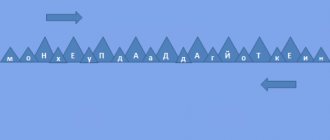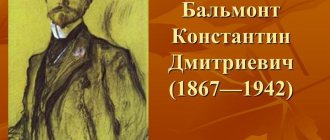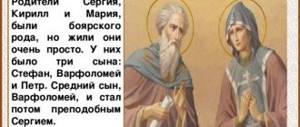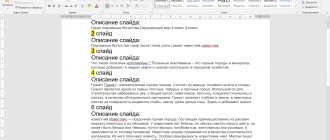so UNT / Russian literature / Lesson plans for Russian literature 5th grade
Lesson 20 A. POGORELSKY. “BLACK CHICKEN, OR UNDERGROUND RESIDENTS”*
13.05.2015 8260 0
Goals:
expand the reading horizons of students; arouse interest in what you read.
During the classes
I. Checking homework.
1. Several students work at the board, writing down diagrams of the dimensions of the verse.
2. Expressive reading of poems by heart.
3. The teacher collects students’ written answers (analysis of works) for checking.
II. Work on the topic of the lesson.
1. Introductory speech by the teacher.
Today we will talk about the fairy tale “The Black Hen, or Underground Inhabitants” by Anthony Pogorelsky. A few words about the writer. Pogorelsky's real name is Alexey Alekseevich Perovsky. Years of his life: 1787–1836. He was older than A.S. Pushkin and V.A. Zhukovsky. Alexey Alekseevich Perovsky took the surname Pogorelsky in honor of the village of Pogoreltsy, where he lived.
He was one of the most educated people in Russia; he took part in the War of 1812. Pogorelsky wrote the fairy tale “The Black Hen, or the Underground Inhabitants” in 1829 for his ten-year-old nephew Alyosha, who later became the wonderful Russian poet Alexei Konstantinovich Tolstoy.
Before us is a fairy tale. Let's start reading it together.
2. Expressive reading of a fairy tale by a teacher in compliance with a fairy-tale, ancient style.
As the reading progresses, the teacher makes the necessary comments.
3. Working with the text of a fairy tale.
1) Who is the main character of the fairy tale?
2) How old is the boy?
3) Why is the boy often sad?
4) What brightens up the boy’s loneliness? (Books, holes in the fence through which he could look out into the street, and especially chickens, in particular the black chicken - Chernushka.)
5) How did Alyosha save the chicken from death?
6) How does the author describe the holiday dinner?
7) What features of life and everyday life are associated with a bygone era?
 Read the description of clothes and hairstyles of that era. What struck you the most?
Read the description of clothes and hairstyles of that era. What struck you the most?
9) Is everything around interesting to Alyosha? Why? What did he think? (That the Black Hen called him in a human voice: “Alyosha, Alyosha!” Alyosha sat alone in the classrooms until nightfall, and at night...)
III. Lesson summary.
The wisdom of the Black Hen, that is, the minister, is that he knows how to be grateful and forgive, and this for Alyosha turns out to be the most powerful and wise lesson. And the meaning of the fairy tale is that everything in life is achieved only through one’s own labor, then it is valued and brings joy and happiness to a person.
Homework:
read further about what happened to the boy at night.
The class is divided into groups and each group is given a task.
1st group.
Answer questions and dramatize your favorite episode.
1. Tell about Alyosha’s journey with Chernushka to the dungeon and about the condition that Chernushka sets for Alyosha.
2. Alyosha in front of the underground king. What wish did he ask to be fulfilled?
3. What is Alyosha wrong about? Does success that he puts no effort into achieving brings him joy?
4. Why did Alyosha’s character begin to change?
2nd group.
1. What happened to Alyosha when he lost the magic seed?
2. Did Alyosha violate the condition set by the Black Hen at the beginning of the fairy tale? Did he betray the underground inhabitants?
3. Why did Minister Black Hen suffer because of Alyosha’s betrayal?
4. Does the Minister Black Hen reproach, accuse, or scold Alyosha?
3rd group.
1. How did the fairy tale end?
2. What is the wisdom of this tale?
3. What laws of a fairy tale are observed here?



